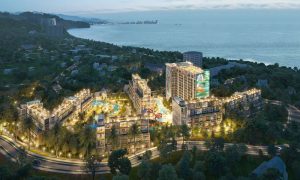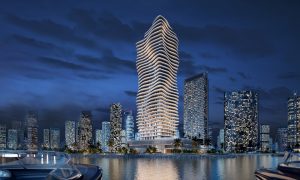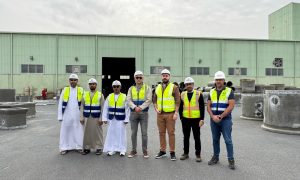Key GCC real estate markets set for H2 growth
The research offers a detailed analysis of the real estate sector’s performance during H1 2024 and presents an optimistic forecast for H2 2024

The real estate sector across the GCC is expected to maintain its upward momentum, reinforced by strong macroeconomic fundamentals, supportive government policies, and increasing investor interest, according to Markaz Real Estate. In its latest real estate report, the firm has forecast a positive outlook for the real estate markets in Kuwait, Saudi Arabia, and the UAE in H2 2024. The scores in the Markaz GCC Macro Index for the second half of 2024 are projected at 3.5 for Kuwait, 3.7 for Saudi Arabia and 3.6 for UAE.
The reports, developed by the Markaz MENA Real Estate team and Marmore MENA Intelligence, the research arm of Markaz, are said to offer a detailed analysis of the real estate sector’s performance during H1 2024 and present an optimistic forecast for H2 2024. The positive projections are based on a thorough evaluation of critical macroeconomic indicators such as GDP growth rates, fiscal policies, and oil market dynamics. According to the International Monetary Fund (IMF), Saudi’s real GDP is anticipated to climb to 2.6% in 2024 from a previous contraction, with an optimistic projection of 8.1% growth in 2025.
According to forecasts for H2 2024, both Kuwait and Saudi Arabia show increases from H1 2024 scores of 2.9 and 3.55, while the UAE maintains a stable score of 3.7, thereby reflecting continued robustness and potential for sustained growth across these key GCC markets. On the Saudi market in particular, Markaz said the real estate sector is set to experience a significant upturn in 2024 following a sluggish period last year, buoyed by burgeoning activities in both the oil and non-oil sectors. The economic recovery is mirrored in the real estate sector, where the General Authority for Statistics (GASTAT) reports a 0.6% rise in the real estate price index for the first quarter of 2024, led by a 1.2% rise in residential land prices.
Further, housing rents have seen a notable increase of 10.4% in April 2024, largely due to a 9.4% upturn in villa rents. In Saudi cities Riyadh, Jeddah, and Dammam, the residential sector saw a substantial year-over-year increase in sales transactions by 77%, 93%, and 28%, respectively, during the first quarter of 2024. The office sector also strengthened with rising rents in high-end and mid-range properties across these cities. This increase in rents has been partly driven by the new regional headquarters initiative, a part of Saudi Arabia’s Vision 2030, which launched at the start of 2024.

The hospitality sector, too, displayed healthy growth, with Riyadh leading with a 26.8% increase in average daily rates during the first quarter, said Markaz in its report.
Despite challenges posed by persistently high interest rates, the outlook for Saudi Arabia’s real estate market remains positive, with strong performance expected to continue into the latter half of 2024, due to solid non-oil sector activities and significant government spending on infrastructure.
Regarding the UAE, Markaz said its real estate sector is poised for continued growth through 2024, driven by solid demand across residential, office and hospitality segments, as detailed in the latest UAE Real Estate Report. The non-oil economy, including significant contributions from the real estate sector, is expected to sustain strong growth, buoyed by government support and favorable policies such as the revised Golden Visa requirements, which now enhance investor eligibility.
The UAE’s real estate market remains vibrant, with record-breaking transactions and price increases, said Markaz in its report. In Q1 2024 alone, residential property prices in Dubai and Abu Dhabi showed impressive annual gains of 18.3% and 8.6% respectively, strengthening the UAE’s position as a competitive luxury housing market globally. Moreover, easing the minimum down-payment for golden visas is anticipated to further stimulate the real estate market by attracting more international investors.
Office spaces in Dubai and Abu Dhabi have also seen rent increases due to strong demand, particularly in higher-grade properties, reflecting an ongoing market trend towards quality and exclusivity.
























